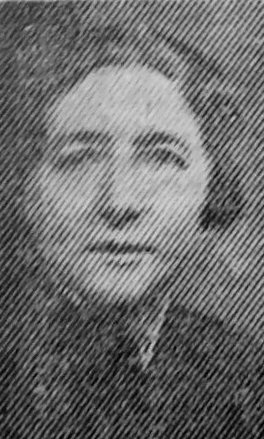South Yorkshire Times, July 21, 1951
Teaching the Natives
Mexborough Missionary’s Change from Mud Hut

Three thousand miles away in Northern Rhodesia a Mexborough woman is working as a missionary among the African Natives. In five years, Senior Capt. Gladys E. Stunell, daughter of a well- known Mexborough family of salvationists, has seen a vast change in life there.
When she went out from Britain in 1946, she taught domestic science in a mud and grass hut. Now they have a real school building with European and native teachers.
Cikankata Station
News of her experiences has reached Mexborough this week in a letter of thanks she has sent to Mrs. E. Healey, Home League secretary, acknowledging receipt of a parcel of useful things Mexboro’ Salvation Army Corps Home League have sent out for the work at Capt. Stunell’s station at Cikankata.
At present we have 50 girls in the school and 130 boys as boarders,” she says. “Each girl spends half of each day on domestic science subjects which I teach with the help of two African assistants. The other half of the day they attend academic school, being taught by the Principal, Senior Major Rive, and two other European teachers assisted by three African teachers.
The boys spent half the day on academic work and the other half on agriculture, carpentry, building, and other subjects. “When I arrived here in Rhodesia five years ago the school had only just been transferred to this station from the old station 80 miles away in the bush. There was no school building and all academic subjects were taught in a large wooden hut or under the trees. For teaching domestic science subjects, we had a large hut made of mud and grass which was very dark inside, but which served us well until other buildings could be built
The students slept in mud and reed huts which was the only kind of house they knew until the Europeans came.
“We had 23 girls then,” Capt. Stunell continues. To get girls to come to school was very difficult It was not that the girls did not wish to come to school but they were not allowed. The parents did not consider it necessary for a girl to have any education: a girl’s work was to farm the land, grow the maize, get married and have children.
Young Men’s Wants
“However we persevered and gradually, as the girls took home to their villages the little garments they had learned to make the interest of the parents was aroused and the numbers increased. Instead of parents forbidding the girls to come to school the fathers now came and asked that a place be made in the school for their daughters.”
“The young men now are wanting wives who can sew and manage the house well for them.”
The district is inhabited by the Batonga tribe, a very musical people. “Many of their customs and superstitions are being done away with, but even yet there is a long way to go.” Miss Stunell says.
“During the last year or two, though, we have found that the girls are refusing to marry a boy they have never seen or who has been chosen for them and they are now insisting on choosing their own husbands.”
“There is no Christian marriage in Northern Rhodesia. When a couple are married there is just a ceremony of their own and before a young man can claim his wife, he must hand over to the father a price the father has asked, usually four cattle and a sum of money.”
Senior Capt. Stunell is the daughter of Mr. and Mrs. J. T. Stunell of Arnold Crescent, Mexborough.